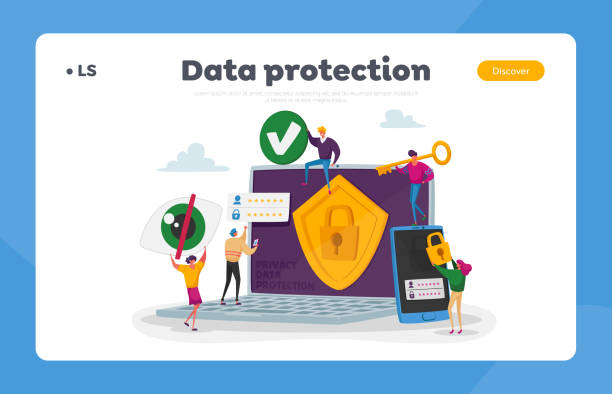6 Essential Features To Look For In Enterprise Encryption Services
As the increasing number of cyber threats are becoming more sophisticated than ever before, protecting corporate data is a major challenge for companies these days. To overcome this challenge organizations are trying numerous ways to protect their data. One solution that has proved effective in recent times is data encryption.
Robust encryption is vital as it forms the first barrier in thwarting unlawful entry into confidential information by criminals. While there is no such thing as an ideal encryption service suitable for every business; thus, it’s imperative to evaluate several aspects before picking one.
This article explores the technicalities of encryption and six necessary components that define a good enterprise service provider.
1. Strong Encryption Algorithms: The Bedrock of Security
The encryption algorithm, which is at the heart of all encryption services, is what organizes and decodes data. It is essential to use enterprise encryption services that use robust, well-established methods.
Most people agree that one of the safest and most effective symmetric encryption methods is the Advanced Encryption Standard (AES). AES provides a strong defense against brute-force attacks with key lengths of 128, 192, or 256 bits.
Furthermore, well-known asymmetric encryption methods are RSA and ECC (Elliptic Curve Cryptography). The mathematical difficulty of factoring big prime numbers is the foundation of RSA, which bears the names of its creators, Ron Rivest, Adi Shamir, and Leonard Adleman. However, ECC takes advantage of the challenge of solving the discrete logarithm problem for elliptic curves. For digital signatures and secure key exchange, both RSA and ECC are essential.
To sum up, while assessing business encryption services, make sure they use robust encryption algorithms like RSA or ECC for asymmetric encryption and AES for symmetric encryption.
2. Key Management in Encryption Services: Safeguarding the Digital Keys
![]()
Key management is one of the crucial elements, which includes generation, distribution, keeping or rotating cryptographic keys. Also, the strength of encryption depends on the cryptographic keys used to encrypt and decrypt messages.
Therefore, enhance the security of your organization by identifying key management solutions that support the secure storage of digital keys.
Key management includes changing the keys now and then to reduce the risk of exploitation of exposed keys. It is critical, especially for corporations dealing with vital data because they should have the capability to operate smoothly within an HSM environment. HSMs make it possible to store encryption keys in a very secure place and perform different cryptographic functions, thereby increasing security.
Additionally, it is expected that an ideal key management system incorporates centralized control and auditing so as to facilitate the tracking of encryption keys at enterprise-wide level by administrators. This implies effective and resilient key management is vital in ensuring the sustained long-term security of the encrypted information.
3. End-to-End Encryption Services: Protecting Data in Transit and at Rest
Data of an enterprise is always in different forms such as in transmission, when it’s still and while being used. In this respect, a complete encryption scheme should cover all these types of states in order to achieve full safeguards.
Hence, ensure the selected encryption services encrypt data transmitted as well as data residing within an organization.
TLS and SSL protocols are very important for the secured transmission of data. These ensure the secure transmission of data through various networks by encrypting the communication between different systems. Confirm that your encryption service uses the most recent version of TLS, which should follow the best practice security for secure communication.
Furthermore, the encryption service must have strong features in place for encrypting files, databases and storage devices. FDE is one way in which users can protect the data saved on their hard disks – even if a system is tampered with, the data cannot be read unless they are first decrypted.
4. Compliance and Certifications: Meeting Regulatory Standards

Enterprises operate in an environment of stipulating security requirements from regulatory bodies of respective industries. Therefore, you need to select encryption that suits compliance standards such as HIPAA, GDPR and PCI DSS that are common.
The encryption services should not only meet these requirements, but also must be inspected regularly and verified by audit or certificate. Ensure you use encryption solutions that offer proper documentation and proof of compliance so that organizations may show they take data security seriously when undergoing regulation.
Moreover, other certificates like FIPS 140-2 (Federal Information Processing Standards) for cryptographic modules are additional confidence in the level of efficiency of the encryption services offered.
So, prefer certified solutions to strengthen confidence that your encrypted data is secure.
5. Scalability and Performance: Balancing Security and Operational Efficiency
With the increase in volumes of data within growing enterprises, encryption becomes necessary.
Since every growing organization requires an encrypted communication service, the selected cryptography should be extensive enough to accommodate new requests. Ascertain the scalability of the encryption approach to ensure that encryption and decryption procedures will be processed effectively without degrading operation.
There should be no trade-offs between scalability and security. Ensure you select an encryption service that relies on highly efficient algorithms and optimizations for high-speed encryption without compromising the strength of the cryptographic mechanisms.
Finally, look at what it entails with respect to encryption in various systems and software used within your company.
6. User Authentication and Access Controls: Fortifying Data Security
Authentication among users and access controls form the biggest components for securing enterprise services in the data security realm.
Despite having strong encryptions, unauthorized disclosure may be achieved by breaching the security system using stolen credentials. As a result, secure data encryption is critical; one that combines well with robust user authentication systems.
User authentication consists of multi-factor authentication (MFA), whereby users must submit more than one way to identify themselves prior to being granted access. The provision also ensures that another layer of security is added, thus overcoming cases of stolen or weak passwords that may be easily cracked.
Organizations need to strengthen their encryption services by adopting MFA protocols so that only authorized agents have access to encrypted information.
In addition, there are effective access controls that help limit information revelation. The service provider should offer fine-grained access controls with which admins can set up access to particular data. It therefore guards against unauthorized release of security-related data outside and even inside the organization.
Enterprises can bolster the overall security posture of their encryption strategy by focusing on user authentication and access controls, deterring attacks from inside and outside the company. This extra level of protection is crucial in preserving the data concerning enterprise information confidentiality/integrity as cyber threats mutate.
Conclusion
A careful look at the technical capabilities is essential when choosing an enterprise encryption service.
The use of strong encryption algorithms, a reliable key management system, end-to-end encryption, adherence to industry standards, and scalability enable enterprises to build a solid base for safeguarding their critical information amidst a growingly complex threat ecosystem.
Today, with cyber threats changing dynamically, an adequate encryption policy does not represent a corporate standard – it has become a life principle of ensuring confidentiality and accuracy of business information.

Tech Hub Digital, a one-stop destination for complete technology-related information.

